#Judgment is part of God’s divine revelation
Explore tagged Tumblr posts
Text
hi im fucking insane and ultrakill somehow got me into angelology. heres some stuff on the archangel gabriel in reference to the occult/abrahamic magick
edit; added the meanings of the tarot at the bottom have fun ;)
As the Divine Herald, he is an angel of guidance, prophecies and revelations. He is also the Patron Saint of Messengers; mail carriers, news outlets, radio stations or any outlet that messages can be delivered through, he’s the one that can aid the most. As the angel who will blow the first horn of the final judgment, he is seen to also represent judgment. He is sometimes even seen as an angel of motherhood due to his announcement of the birth of Christ and John the Baptist and from this he is sometimes given the titles of Patron Saint and guardian of children. He represents the spiritual power of God, His ideals and principles of spirituality. As a result, he is seen as an angel of spirituality, dreams, divination and even magick.
He can be invoked for:
Guidance
Faith
Hope
Strength
Spiritual aid
Dreaming/dream interpretation
Theology
Understanding scripture
Birth
Here’s symbols he is associated with:
Element; Water (Spirituality, change, emotions)
Planet; Moon (Spirituality, magick, guidance)
Day of the week; Monday
Colors; White, silver
Animal; White dove (Holy Spirit)
Tarot; House of Cups, The Star, The High Priestess, Temperance, The Moon, Judgment*
Gemstones; Pearl, moonstone, emerald, diamond, quartz
Cardinal direction; West
Season; Winter
Other symbols; White lilies, trumpet, banner, feathers
How to connect with him:
Devotional Activities
Praying
Meditation
Fasting
Reading the Bible
Studying theology
Educating yourself about religion/sprituality
Material Offerings
Flowers (White lilies, white roses, lavender)
Incense (Jasmine, frankincense, lavender, rose)
White wine
Feathers
Perfume
Candles (White or silver)
Prayer cards
Bible verses
Poems/art
Moon, water, magick or religion associated items (moonstone, holy water, tarot card, etc.)
Archangels prefer devotional activities as offerings over material ones, though they will not reject them.
He can help with;
Lucid dreaming
Receiving visions
Developing divination skills and spiritual awareness
Lack of belief
Communication issues
Magick workings
When you feel lost/don’t know how to continue/unsure of how to move forward
His Kabbalistic sigil
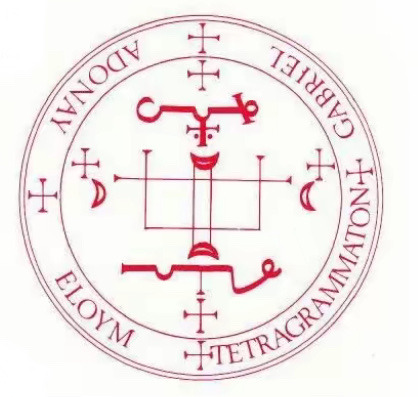
His seal from the Heptameron

All in all, Gabriel is a very firm but merciful angel. He can be a bit pushy when you are not doing the right thing, but he is less rough about it than, say, Michael. He has a better understanding of human emotions than most angels and will act a bit more accordingly. When you don’t know where to go in life or have no ideas on how to move on, he is the one that should be contacted. He is also sometimes associated with the divine feminine due to his associations withe the moon and motherhood. He is usually seen as 3rd to God, with Michael or Sandalphon being 2nd.
Some extras about the archangels in general;
Angels mostly see humans like how we see dogs and often have a lesser understanding of human egos. It should be noted that angels have a bit of a reputation of being more difficult to work with due to them expecting a lot of discipline. They will not give you what you want, they will make you work for what you need. If one wishes to work with the archangels, they expect constant self improvement.
bit of a p.s; despite Archangel being the 2nd lowest on the hierarchy, they are the most powerful angels. Archangel is a rank and it means “governing angel” or “ruling angel”, they rule over other parts of the hierarchy (i.e Michael rules over the seraphim, Gabriel rules over the cherubim). Archangels are often called “the great princes”, however, Michael is the only one in the Bible to actually receive that title. The only reason why they are so low on the hierarchy is because they are physically far from God, as they spend their time on Earth helping humanity.
* What each of the tarot cards mean
House of Cups- relates to emotions and matters of the heart. Associated with love, feeling and inner conflict, they ask us to consider what is deeply important to us
The Star- the embodiment of hope and healing brings a message of renewal, optimism, and inspiration. When pulled, remember that the universe is working in your favor, and is encouraging you to have faith in where you are being taken.
The High Priestess- listen to your inner voice and follow your instincts, your mind knows far more than you think. When pulled, stop looking for answers around you and start looking within yourself for the guidance you seek.
Temperance- encourages peace and patience, reminds you to go with the flow of life instead of trying to force a pace and direction. When pulled, it is a message to take things as they come, and remain flexible enough to change with the changes.
The Moon- represents hidden thoughts, feelings, doubts, and fears. When pulled, you may be letting fear overtake your faith in the future. Do not be fooled, you cannot believe everything that you see, hear, or think. Once you bring your feelings to the surface and face them, only then can you rid yourself of worry.
Judgment- your past and future come together. When pulled, reflect on your decisions and actions you have made up until now and make sure that they are bringing you in the direction you want. Remember, your future is not set in stone, and it's never too late to make a change for the better.
thanks for listening to my madman ramblings baiiiii
39 notes
·
View notes
Text

Sarah Edwards had an extremely special experience with the Lord. Like Julian of Norwich, the Lord exploded her being with His love. It all began with a renewed sense of the assurance of her salvation, after a divine revelation of Roman 8:34.
The day was January 20, 1742.
The Spirit of God began extraordinarily to set in. Revival grew, and souls did as it were come by floods to Christ”
That is how Jonathan Edwards described the remarkable progress of the gospel in Northampton in 1734, one local manifestation of what would come to be known as the First Great Awakening.
As her husband was to describe it, God had filled Sarah with “joy unspeakable and full of glory” (I Peter 1:8).
To me it seems that they each were being prepared deep in their souls for the series of bereavements they would endure from the late 1740s on. The stretching of Sarah Edwards is a beautiful testimony that seems other-worldly in detail, but I wanted to share the parts that to me seemed to reveal God’s way with bringing us to the place of trust and rest in His perfect will. Truly removing all fear and anxiety by perfecting His love in us. Just as He said.
Her experience reminds me so much of the Lord’s “showings” to Julian of Norwich.
God “stretched” her soul and then filled it with His own glorious fullness.
Although the first part of Sarah’s life appeared outwardly peaceful, her inner life was sometimes troubled.
Later in life, however, she endured a series of crises, through which she remained serene. The most significant turning point came in 1742, when she was given a fresh appreciation of “the breadth and length and height and depth” of Christ’s love (Ephesians 3:18).
From a young age, Sarah enjoyed an awareness of the beauty and glory of God. Famously, when she was just 13, Jonathan (aged 20) wrote a delightful eulogy to her piety and lovely character.
(Christian artist Sherri Youngward put the poem he had written about his wife to song - I will include it in the post. I have posted it SO many times!)
By 16, Sarah was powerfully aware of her own sin, and trusted God for mercy.
She valued “nearness to Christ as the creature’s greatest happiness,” and she could say, “My soul thirsted for him, so that death meant nothing to me, that I might be with him; for he was altogether lovely.”
Seventeen-year-old Sarah married Jonathan in 1727 and moved to Northampton. Jonathan was assisting his grandfather until he died two years later, and Jonathan succeeded him as sole minister.
A baby girl was born to Sarah and Jonathan in 1728, the first of eleven children. Visitors to their home testified to the warmth and love of their family life. Meanwhile, Sarah continued to know God’s smile. By 1735, she had gone through labor four times (then immensely risky), but she wrote,
During a time of great affliction, I could often say: “Whom have I in heaven but thee? And there is none on earth that I desire beside thee. My soul thirsteth for God, for the living God.”
Up to the age of 31, Sarah’s life was reasonably smooth. She did experience mood swings and depression, no doubt associated in part with the rigors of childbearing. She depended a lot on the approval of her husband. She was sometimes overprotective of his reputation, and feared the bad opinion of the townspeople.
At times she was beset with anxiety. Even still, she continued to know and rejoice in God. With the psalmist, she desired ever closer fellowship with God (Psalm 27:4), and longed for greater holiness (Psalm 139:23–24).
Jonathan had begun his ministry at a time when most people in Northampton attended church, but many were nominal Christians. Most of the youth were unconverted, with low moral standards.
The sudden death of one young man in 1734, however, shook the community. At the funeral, Jonathan preached on Psalm 90:5–6, challenging all to prepare for death and judgment. Small prayer groups sprang up. By early 1735, many were convicted of sin, repented, and found assurance of forgiveness.
Throughout the next year, revival continued in Northampton and in many other communities in New England, as well as in Britain and beyond.
At such times of revival, God draws near in a special and widespread way: unbelievers are convicted and converted, and believers are given a deeper awareness of spiritual reality.
Sarah was so overwhelmed with assurance of the love of God that some wondered whether she would survive until her husband’s return.
In those days, Sarah had felt crushed by awareness of her own indwelling sin, but then overjoyed by the glory of salvation.
Her delight in God was so overpowering it was as if she were already experiencing the joy of heaven.
I never before, for so long a time together, enjoyed so much of the light, and rest and sweetness of heaven in my soul. . . . I continued in a constant, clear, and lively sense of the heavenly sweetness of Christ’s love, of his nearness to me, and of my dearness to him.
Along with that personal sense of God’s love, she felt intense love and compassion for others.
She no longer feared the ill-will of the town or the disapproval of her husband.
Nor did she care whether it was her husband or another preacher who was more effective in ministry.
The priority was that God should be glorified. If that involved suffering, so be it. His glory was all in all.
She said that she seemed to be lifted above earth and hell, out of the reach of everything here below, so that she could look on all the rage and enmity of men or devils with a kind of holy indifference and an undisturbed tranquillity. At the same time feeling compassion and love for all mankind, and a deep abasement of soul, under a sense of her own unworthiness.
She also felt more perfectly weaned from all things here below than ever before. The whole world, with all its enjoyments and all its troubles seemed to be nothing: — My God was my all, my only portion.
She envisaged the worst scenarios that could possibly befall - but God loved her, so Sarah could trust him. Whatever happened, her response would be “Your will be done” and “Amen, Lord Jesus!”
The reality of Sarah’s “resignation of all to God” would soon be tested as she faced a series of crises: war, poverty, rejection, and multiple bereavements.
War resulted in economic hardship. Parishioners struggled to feed themselves, and the Edwardses’ salary often went unpaid. Sarah had to submit detailed household budgets to the church and engage in every conceivable economy.
A controversial case of church discipline also caused friction. Factions in the church, including some of Jonathan’s own relatives, turned against their pastor. The church eventually dismissed Jonathan in June 1750, leaving the family without financial support.
Yet Jonathan and Sarah remained free of bitterness, shut up to the opinion of all but God.
Later on, a relative admitted that he had spread numerous untrue slanders about them, but they never demanded public vindication.
She described entirely swallowed up in God, as her only portion, and His honor and glory was the object of her supreme desire and delight.
At the same time, feeling an even greater love to the children of God than ever before. She seemed to love them as her own soul; and when she saw them, her heart went out towards them with an inexpressible endearedness and sweetness.
She was able to view them by faith in their risen and glorified state, with spiritual bodies re-fashioned after the image of Christ’s glorious body and arrayed in the beauty of heaven.
Then came sorrow.
Jerusha Edwards, Jonathan’s and Sarah’s second-oldest daughter, died in 1748 at the age of 17. She had offered to care for a visiting missionary, David Brainerd, as he died of tuberculosis, but she too succumbed to the disease. Exceptionally godly, Jerusha had been regarded as the “flower of the family.” But her parents submitted to God’s sovereignty, knowing their daughter was with her Lord.
In 1752, 20-year-old Esther married Aaron Burr, the 36-year-old president of New Jersey College at Princeton.
They soon had two children — the youngest, Aaron Jr., would famously kill Alexander Hamilton in a duel in 1804, while U.S. Vice President — but Aaron Sr. died at just 41 years old in 1757. Jonathan then was invited to
take his place as President of the New Jersey College. He moved down to Princeton ahead of the family.
Soon after taking up the post, in March 1758, Jonathan died after a smallpox vaccination.
While dying, he sent word to Sarah, thanking God for the “uncommon union” that they had enjoyed, and looking to the eternity that lay before them in Christ.
When Sarah received the terrible news of his untimely death, she responded with towering faith:
The Lord has done it: He has made me adore his goodness that we had him [Jonathan] so long. But my God lives and he has my heart.
She soon received further terrible news. Esther had died a few days after her father.
Sarah immediately left her own children and traveled down to Princeton to collect her two orphaned grandchildren.
On the way home, she herself fell critically ill and died on October 2, 1758, at age 48.
Throughout this tragic series of events, and in her final hours, Sarah still could testify,
Neither death nor life, nor angels nor rulers, nor things present nor things to come, nor powers, nor height nor depth, nor anything else in all creation, will be able to separate us from the love of God in Christ Jesus our Lord. (Romans 8:38–39)
From an early age, Sarah Edwards had delighted in God. That delight was intensified during revival, it endured through suffering, and she died knowing that death would be her entry to unbroken delight in him.
Her delight in God gave her a passion that he be glorified. She knew that God is worthy of the praise of every person on earth (Psalm 148), and she could not bear to think of him not receiving his due:
I felt such a disposition to rejoice in God, that I wished to have the world join me in praising him. I was ready to wonder how the world of mankind could lie and sleep when there was such a God to praise!
Sarah longed for revival, not only in her own life, in her own family, or in Northampton, but throughout the earth.
The Edwardses’ ambitions and prayers went far beyond personal, family, or parochial concerns — they were certain of the ultimate and cosmic triumph of Christ. And so, Jonathan urged all believers to unite in prayer for global evangelization and revival.
As we love God more, and enjoy his love, we too long for him to be honored by all, and for his glory to fill the earth.
We too are to pray and work for revival — in our own experience, our family, our church, our nation, and the world:
Blessed be his glorious name forever; may the whole earth be filled with his glory! Amen and Amen! (Psalm 72:19)
(These are mostly actual excerpts along with my own thoughts compiled from several articles written about Sarah Edwards (1710–1758)
Wife of Jonathan Edwards (1703–1758) by Sam Storms, Sarah James and R.Scott Clark. I wanted to share what stood out most to me about her life)
9 notes
·
View notes
Text
Deep dives into folklore: Apocalpses

The apocalypse, or the end of the world, has been a recurring theme across a wide range of mythologies, cultures, and folklore throughout history. These apocalyptic narratives offer insight into the beliefs, fears, and values of different societies. They explore how these cultures understood the world around them and how they sought to explain the end of life as they knew it. Despite the differences in cultural contexts, there are notable similarities and differences between apocalyptic depictions across various traditions. These narratives often serve as cautionary tales and reflections on human nature, societal anxieties, and cosmic cycles.
Similarities in Apocalyptic Narratives
1. Catastrophic Events:
Most apocalyptic stories involve some form of catastrophic event that brings about the end of the world. These can include natural disasters (such as floods, earthquakes, and volcanic eruptions), celestial phenomena (such as eclipses and comets), or even supernatural events. For example, in the Hebrew Bible, the story of Noah's Ark describes a great flood sent by God to cleanse the world of sin. Similarly, in Norse mythology, Ragnarök involves a great battle and cataclysmic events that lead to the destruction of the world.
2. Moral Judgment and Divine Retribution:
Many apocalyptic narratives involve a sense of divine judgment or retribution for human wrongdoing. The end of the world is often portrayed as a consequence of humanity's moral failings. For instance, the Book of Revelation in the New Testament describes a final judgment where the righteous are rewarded and the wicked are punished.
3. Cycles of Creation and Destruction:
In several cultures, apocalyptic events are seen as part of a larger cycle of creation and destruction. After the world ends, a new world or era may emerge. This is evident in Hindu mythology, where the concept of yugas (ages) describes a cycle of creation and destruction. The Kali Yuga, the current age, is expected to end with a cataclysmic event before a new age begins.
4. Heroes and Survivors:
Many apocalyptic stories feature heroes or survivors who play a key role in the narrative. These individuals often represent the best of humanity and may carry forward the legacy of the old world into a new one. For example, in Greek mythology, Deucalion and Pyrrha survive a great flood and repopulate the earth.
Differences in Apocalyptic Narratives
1. Cultural Context:
Apocalyptic narratives often reflect the specific concerns and values of the culture from which they originate. For example, the biblical flood narrative can be seen as a warning against moral decay and disobedience to divine law. In contrast, the Norse myth of Ragnarök emphasizes themes of fate, heroism, and the cyclical nature of existence.
2. Diverse Agents of Destruction:
The agents of destruction vary across different cultures. In some traditions, the apocalypse is triggered by gods or supernatural beings (e.g., the Norse gods in Ragnarök). In others, natural disasters or human actions play a central role (e.g., the flood in the Hebrew Bible or the destruction of Atlantis in Greek mythology).
3. Outcome and Resolution:
The outcomes of apocalyptic narratives can differ widely. Some stories end with a new beginning or rebirth (e.g., the Hindu concept of a new yuga following the Kali Yuga). Others conclude with finality, suggesting the end of all existence (e.g., some interpretations of the Book of Revelation).
Societal Impacts and Influences
1. Reflection of Anxieties:
Apocalyptic narratives often reflect societal anxieties and fears about the future. They may serve as cautionary tales that highlight the consequences of moral decay, environmental destruction, or other perceived threats.
2. Moral and Ethical Lessons:
These stories often carry moral and ethical lessons about human behavior. They may encourage individuals to lead righteous lives, respect nature, or avoid hubris.
3. Cultural Identity and Continuity:
Apocalyptic narratives contribute to a culture's identity by providing a shared story that explains the past and envisions the future. They often affirm cultural values and reinforce a sense of continuity.
4. Influence on Art and Media:
Apocalyptic themes have influenced art, literature, film, and other forms of media across the world. These stories continue to inspire creators, providing a rich source of material for exploration and reinterpretation.
In conclusion, apocalyptic narratives across different mythologies, cultures, and folklore offer valuable insights into human nature and societal concerns. While these stories may differ in their specifics, they share common themes of destruction, judgment, and rebirth. They continue to resonate with modern audiences, reflecting ongoing fears and hopes about the future of humanity.
#writeblr#writers of tumblr#writing#bookish#booklr#fantasy books#creative writing#book blog#ya fantasy books#ya books#writers block#national novel writing month#writers#female writers#tumblr writers#writers on tumblr#writerscommunity#am writing#fantasy writer#fiction writing#how to write#story writing#teen writer#tumblr writing community#writblr#writer problems#writer stuff#writerblr#writers community#writers corner
24 notes
·
View notes
Text
Owlcatober Day 5: Forgiveness
Finally some Sakura stuff! I'm not entirely happy with how it turned out, but I have a schedule.
Get it together, Sakura. It’s nothing. Just baring your truest self and revealing your most carefully-hidden secret to a man with no filter and very judgmental views on the fey. Nothing at all! The kitsune sighed and steeled herself. Camellia had figured it out, she had to tell Ulbrig. Juggling two relationships at once, even if both were purely sexual, required some finesse and balance, and part of that was making sure the two were on equal footing with regards to her. What she told one, she told the other, and what she did for one she did for the other. At least, in theory. If Ulbrig ever started committing unjustified murders, she’d cover for him!
Outwardly, Sakura was a devout, if unusual, cleric of Arshea, one of the empyreal lords and a goddess of sex, beauty, and freedom. In reality, she served the Green Mother, the fey goddess of lust, intrigue, and carnivorous plants. It was a helpful cover, allowing her to pass as someone devoted to good gods without forcing her to change her behavior much. She was almost certain Anevia had figured out the truth (she would need to have a talk with her about that), and Camellia had also managed to piece it together. It was time Ulbrig knew as well. Backwards as he often was, she was fond of the barbarian. Hopefully, this wouldn’t chase him off.
Sakura made her way to her garden in the middle of Drezen. She lamented that she couldn’t keep the massive carnivorous plants she loved, but that would be too obvious. Ulbrig spent most of his time here, it was one of the few places he could still see the kinds of plants that used to cover Sarkoris. She approached from behind, swallowing and steeling her resolve before she spoke up. “Ulbrig. Can we talk?” Honestly was… Unusual, for Sakura. It was almost heresy, but for once she thought it was necessary.
He was squatting before a pot, carefully tending the plant within. He turned towards Sakura with a slight smile. “Evenin’. Of course we can talk.” He turned around at sat down, looking at her expectantly.
Sakura flinched and waved back and forth on her feet. This was already harder than she thought. “Ah, yes. Well… You know that I’m a priestess of Arshea…” He nodded, staring at her with those big, dumb brown eyes. “Ah, except, I’m… Not.”
“Eh? Oh, sorry. I get all these southern and eastern gods turned up around, can never remember which is which.”
“W-what? No, I mean, I lie about being one of Arshea’s faithful.” She had to make sure to keep her voice low and kept glancing around in case someone was watching. Her claws sunk into the unholy symbol around her neck, disguised to resemble Arshea’s.
At least that part of the revelation didn’t seem to bother him much as he continued to question her, “Uh, huh. Um, why?”
“Well, ah…” Sakura mentally reprimanded herself for being so flustered about this. “It’s… Convenient. Most people know Arshea is good, but don’t know that much about her. And I do agree with most of her edicts!”
Ulbrig’s eyes narrowed slightly. “What, you one of those sorcerers that pretends to be holy? Lies and says her power’s from the spirits when it’s actually just foul arcane?”
That genuinely caught Sakura off-guard. Did people do that? Perhaps she could have been doing the reverse, claiming her powers were arcane rather than divine… No, thoughts for another time. “No, not at all! They are divine, just… Most people don’t approve of the actual source…” She was ever so thankful that Ulbrig trusted her, else that would have derailed the whole conversation.
“Oh.” That seemed to relax him. “Hmph, well, who cares who it’s from. Long as it’s not one of them oglins. It’s… Not from oglins, is it?”
Sakura withered, uncharacteristically embarrassed at his piercing gaze. Perhaps she should just strip and offer her body, move past this and keep up the lie… No. No! She was going to do the right thing for once in her life. “Well, it’s… Not from demons, that much is true.” He seemed to relax. “B-because it’s from the fey. My true goddess is the Green Mother.” She decided to omit the Green Mother’s portfolio in case that made it worse.
“So it is from oglins.” She winced as she could see the rage in his eyes. He was trying his hardest to hold it back. She had lied to him. This whole time, the woman he had been sleeping with, the woman he loved, was working for the same monsters that tore apart his home! But, some reason cut through the cloud of fury upon his mind. Ulbrig didn’t care much about the difference between demons and fey, they were all the same to him, but… Sakura would always get defensive when he indicated he thought as much. She hated the demons, as much as he did. Ulbrig never cared about the difference between different types of oglins, but maybe he should. If this fey goddess opposed the demons, maybe… Perhaps he could tolerate it. At least for now. He sat there in thought for minutes, Sakura dreading the moment when he opened his mouth again. At last, he spoke up. “Sakura. Need you to answer something honestly.”
“Y-yes?”
“Y’said a while ago that you wanted to restore Sarkoris. See it green again. Was that also a lie?” There was a frightening calm in his voice.
Sakura answered plainly and honestly. “It wasn’t a lie. I want this place to bloom again. All the life that was stolen from Sarkoris… I think the Green Mother guided me here to restore the land.”
Ulbrig nodded and took a few deep breaths to calm herself. “Alright. Then… I’m still sort of mad. Mostly about you lying, but… I guess you lie about it to everyone, so it’s not as bad. I don’t… I don’t get it? This whole oglin… Guess I should say fey. This whole fey worshippin’ thing. But… I forgive you for it.”
Sakura tilted her head. That sparked rage in her, she didn’t even quite know why. “You… W-what do you mean you ‘forgive’ me?”
He shrugged. “I forgive you for following an oglin. Fey. Sorry.”
“I don’t need forgiveness! I’ve done nothing wrong! I’m just… I’m trying to be honest. This is who I am. I worship the Green Mother. She’s given me life, and purpose. I just… You deserve to see behind the mask.” She winced and took a step back. That was always what it was about. The curse of the kitsune, to forever wear a mask. Even when they tried to be honest, they could only ever show half of themselves. And because of that, Sakura had been cast out, taken in by outcasts, and forced to wear yet another mask because of it. She needed no forgiveness. If anything, the world should be asking for her forgiveness.
Ulbrig didn’t understand. He was just like the so-called civilized, fearing the truth of the wilds and seeing deceit in the mask forced upon Sakura. “I understand, Sakura. You were bewitched by them. Lured in by those puck’s false promises and whatnot. But it’s alright. You’re not with the oglins that destroyed Sarkoris.”
Sakura’s fists clenched and she let out a mocking laugh. “You don’t get it. Of course you don’t, no one ever does… I choose to be like this! I wasn’t tricked, I wasn’t bewitched, I was thrown out for being a shapeshifter and taken in! You don’t get to ‘forgive’ me! I don’t need forgiveness!” She was shouting now, though she hadn’t realized it.
Ulbrig pushed down his anger, trying his hardest to be understanding and compassionate. “Sakura, listen.”
“No. I’m done listening to you. I… I thought you were different… You’re just like everyone else that cast me out and spit on me because they think I choose to wear my masks.” She had had enough of close-minded fools. She stood up and walked away with a hiss.
11 notes
·
View notes
Text
♫ ♪ ⊱ .⋅ Aoede ⋅. ⊰ ♪ ♫
Once upon a time, @diodellet and I joked about Singer! Reader x Stan! Pierro as the modern AU of my Yandere! Pierro fics. Fast forward to the present, I have applied my clown makeup ꒰(•́⍜•̀)꒱
Tw:: YANDERE, unhealthy relationships, toxic stan culture, stalking, kidnapping, drugging
♡ 1.7k words under the cut ♡

♡ So how did someone like Pierro become your no#1 stan? Even in his youth, he considers himself above such reprobate theatrics. But that all changes during a rough period in his life when he hears you calling out to his soul in the middle of a busy street.
♡ In actuality, you are an ordinary busker. Hypnotized by your music, Pierro stays for the remainder of your performance. You are like a beacon of hope that sprung out of nowhere, with your angelic voice and uplifting lyrics. And you’ve clearly noticed him because you cheerfully thank him after your last song.
How could he describe the solace evoked by your music? He feels calm, invigorated.
“Your performance was utterly enchanting,” is all he tells you.
He takes a few bills out of his wallet, but you quickly pack away your tip box.
“Thank you,” you reply, a bright smile on your face. “Your smile was the best payment I could’ve asked for!”
♡ Since then, whenever he visits that area, Pierro looks for you to no avail. You’ve completely vanished, leaving him to question whether you were truly some guardian angel. Then one day, out of nowhere, he hears your voice again on the radio. The familiar song is followed by your official introduction as an up-and-coming artist.
♡ As it turns out, you were scouted by an agency!! Pierro had miraculously attended your last street performance, and now he can listen to your music anytime. Your debut album is worth the purchase; it has the same divine melody…minus your presence. And so, against his better judgment, he attends your first official concert.
♡ Your second performance is just as life-changing. Onstage, illuminated by the heavenly lights, you successfully mesmerize the entire audience including Pierro. From afar, you look ethereal, dreamy, charismatic…and he also finds you pretty. Very pretty, like a god who descended from the skies to share their gift of song with the world.
♡ Pierro is not blind to the parasocial nature of your relationship. Regardless, he listens to your new albums religiously, sends you elegantly-penned fanmail, and attends a few more concerts and fan meetings. Unlike your “hopelessly degenerate” fans, he greets you in a calm, serious manner and doesn’t prolong his turn with you. His gaze is rather intense in photos, however.
♡ There is also the dark side of his adoration. Constant thoughts about you, endless loops of your songs, the urge to hunt down your undeserving stans, a suppressed desire to bridge the distance between the two of you. It is no wonder that as your career comes crashing down, so does his entire world.
♡ It isn’t your fault, of course. The paparazzi, the media’s criticisms, your exploitative agency and toxic fanbase…he sees how it takes a toll on you over the years. You can fool the entire world with a false smile, but he sees the growing dimness in your eyes. After another leaked hospital visit, your agency announces the termination of your contract.
♡ Your remaining fans are devastated, but not so much as Pierro. Yet despite his despair, a cruel part of him revels in it. He buys your discounted merch at clearance sales and writes more heartfelt letters until your agency stops forwarding your fanmail. He no longer has to share you with the world.
♡ That being said, he has no time to grieve your downfall. Stagnation would be an insult to your legacy, and now he can fully devote himself to his work. So he accepts a job offer from the Tsaritsa, moves to Snezhnaya, and establishes the Fatui.
♡ Fast forward a few decades, he has built a new life for himself. The Fatui is now a powerful organization, prestigious on paper and feared in the black market. Meanwhile, you have been reduced to an old name in music history, forgotten in favor of new talent. And while his obsession survives in personal playlists and merch collections, Pierro refuses to waste time searching for you. Rather, you return to his life on your own.
♡ He is simply browsing the drugstore when a stranger bumps into him. Just as he is about to brush off the accident, Pierro hears their apology and whirls around. It’s you, standing in front of him, this time without stanchions or bodyguards.
♡ His first thought is that you’ve changed. Older appearance, plain clothes, a quiet voice. No one else would believe that you were once a lively singer with the power to charm hundreds of people. If anything, you are the one staring at him with awe and respect.
♡ Your nervous “Do I know you?” is what snaps him out of his thoughts. Pierro quickly denies it, and your relieved expression only confirms your identity. He accepts your apology, walks past you, and observes you from a distance. Sure enough, it’s all there from your telltale mannerisms to the snack preferences memorized from magazine interviews.
♡ …Your tired disposition and purchased medications also aren’t lost on him. After following you to your apartment, he drives back to his office and enlists the Fatui in gaining intel. Within days, he catches up on your post-musician life. You laid low, moved to Snezhnaya, joined a company which lets you work from home. What a pitiful fate.
♡ Another crucial fact is that you no longer recognize him. While that stings, Pierro understands—he, too, has changed over the years, with his fine suits and dignified attitude. Actually, he could use this to his advantage. With his elevated status and the dissolution of your professional boundaries, he can entertain what was once a foolish dream.
♡ You begin to run into him everywhere—in the drugstore, the grocery, your favorite cafe. Your encounters soon evolve into brief conversations then casual dates. With each reunion, Pierro falls deeper into his obsession. Who knew that the real, imperfect you was this enchanting?
♡ Courtship aside, it’s also natural that he seeks justice for you. The companies which exploited you? Exposed for their crimes against other celebrities. Your old song favored by the YouTube algorithm? Instantly hit with copyright strike, along with your remaining legacy. Even your official channel gets hacked and deleted. In other words, Pierro gatekept his idol
♡ From your end, you don’t suspect anything. Sure, you do question your frequent run-ins until Pierro claims that the Fatui opened a new office in your area. And despite your disbelief when he formally asks you out—him, the director of the Fatui?!—you accept out of mutual attraction. You haven’t had a close companion in years, and he makes you happy.
♡ Sure, he is vague about his life before the Fatui but that’s fine, right? You’ve only started dating and he respects your own secrecy. You’re still hesitant to reveal your previous identity, given your slandered reputation. Your saving grace is that Pierro seemingly doesn’t know your stage persona at all, a rare trait for those from your generation.
♡ A few weeks into your relationship, you are invited to his home. His estate is palatial, heavily guarded, distanced from the city. And Pierro is nothing short of a perfect host as he shows you around, allowing you to admire his private art collections from Snezhnaya and Khaenri’ah. In your current state, you’ve never felt more out of place.
♡ After a few glasses of wine, you head to the bathroom. While Pierro gave you directions, he didn’t specify which door it was. Which is how you discover what seems to be a storage room for more paintings and art pieces. Oops, time to close—is that your face?
♡ Shakily, you turn on the lights. All four walls are covered in framed posters—your posters from the height of your career. The display cases hold your old merch such as vintage albums, T-shirts, accessories, fragrances, photos and magazine articles, every relic of your past. What is all of this?
♡ The answer is a familiar letter set on the table. The handwriting, the name on the envelope, the wax seal with a four-pointed star…doesn’t this belong to one of your devoted fans? You only look away when a shadow engulfs you; it’s Pierro standing in the doorway.
“Careful now, this is my most prized collection. What a shame, my surprise has been ruined.”
♡ Despite his serious expression, his gaze is absolutely terrifying. You can’t even panic before you are suddenly overtaken by drowsiness. Your vision blurs; you lose your balance; you nearly collapse if not for Pierro catching you. You can only weakly flail in his arms as he carries you to his room. The last thing you hear is his gentle humming, a familiar melody which lulls you to sleep.
♡ It was wise of him to serve the drugged wine early. With you unconscious, Pierro can proceed to the next phase of his plan. This time, he enters your apartment where Fatui employees are already packing your things. He personally sifts through the items in your bedroom and finds your old singer memorabilia stashed in your closet.
♡ Dusty instruments, crumpled sheet music, awards…and your fanmail. He feels a twinge of warmth upon finding his letters compiled in their own box; the others are burned with his lighter. See, he was truly superior to your other stans. You clearly cherished his every word over their insincere ramblings, and now he can directly profess his undying love for you.
♡ When he returns to his estate, you’re still unconscious. That is when Pierro finally allows himself to smile, caress your face, envision your new life together. He has it all planned out—a shared bed, a new wardrobe fit for a house-spouse, a wedding for when you’re more docile. You belong to him and no one else.
♡ …He does know that to hear you sing again is a wistful delusion. Your passion for music is gone; your voice has been altered by age and unuse; and you’d probably reject such a request from him. But that’s perfectly fine. You already saved him once, so allow him to repay the favor.
♡
If you liked this post, pls consider reading Disjecta Membra and Chess Piece linked above!! And don't ask me wtf I was on to make Pierro, of all characters, a celebrity stan bc idk either. I hope y’all enjoyed this :'>
Tag a Pierro enjoyer!! @frogchiro @kocherry @nicebonescomrades @mnemosyneechan @thescribeoflostmemories @victoria1676 @artiifex @pierroswife @fluffy-koalala @leftdestiny-posts @ansy-tea @oofasleep @elysiasfiance @frostedclementine
#pierro#pierro x reader#yandere pierro x reader#yandere pierro#yandere fatui harbingers#fatui x reader#genshin x reader#yandere genshin#tw: yandere#tw: dark#tw: manipulation#tw: drugging#tw: stalking#tw: kidnapping#g/n reader#jessamine-writing
283 notes
·
View notes
Text
SPIRITUALITY IN ISLAM: PART 60: HIKMA (WISDOM)
Wisdom (hikma), meaning knowledge, the understanding of Divine commandments, of philosophy, of the real reasons for the existence of events and of things, and grasping the goals and benefits in religion, has been interpreted by the exacting scholars of truth as being able to combine useful knowledge and righteous deeds in life. Righteous deeds are the willed outcome of knowledge applied, and the beginning of new Divine gifts.
Starting from the perspective of the description above, some scholars deal with wisdom in two categories, namely practical and theoretical, as they have done with reason. Theoretical wisdom is the effort that one makes along with a God-given ability to observe things and events as if they were an exhibition. It is also an attempt to penetrate the meaning behind and purpose for such events in order to study and read them like a book, to listen to them like a symphony, and to study and try to understand the mysterious relationship between the physical and metaphysical realms of existence.
As for practical wisdom, it is worshipping to discover and turning to the Owner of this exhibition, the Author of this book, the Composer of this symphony, running to Him in love and yearning, and deeply experiencing the awe and amazement of being in His Presence. So, to sum up, wisdom begins with reflection, curiosity, wonder, and the zeal to study and search, and continues with obedience and worship, ending in spiritual pleasures and eternal happiness.
Studying the Qur'anic verses where wisdom is mentioned, we can add to the above explanation the following points:
Wisdom means the subtleties and mysteries of the Qur'an. Since the Qur'an is, in one respect, the correlative of the book of the universe and, in another, its interpretation and explanation, its subtleties and mysteries are also those of the book of the universe. The Qur'an indicates this in this verse (2:269): He grants the wisdom to whomever He wills, and whoever is granted the wisdom, has indeed been granted much good.
Wisdom means Prophethood and the meaning of Messengership. The scholars of the Hadith have interpreted it as Sunna (the way of the Messenger). The verses, God granted him (David) kingdom and wisdom (2:251), and We granted Luqman wisdom (31:12), refer to this meaning.
Wisdom, in both its theoretical and practical aspects, means goodwill, which is mentioned in: Call to the way of your Lord with wisdom and fair exhortation and preaching (16:125).
Some have defined wisdom as correct judgment, and acting as one should act and doing what is necessary to do at the right time and right place. We can elaborate on this meaning, which can be re-stated as being just, moderate, balanced, and straightforward as follows:
Giving everything its due, or right judgment, without going to extremes, viewing and discharging our responsibilities in the framework of the Shari'a, fulfilling the necessary conditions and prerequisites for any desired result, avoiding extremes, even when doing good deeds, being careful to maintain the fact that religion can be practiced or lived under all circumstances, and leading a life in accordance with the Sunna of the Prophet, upon him be peace and blessings.
Always preferring God’s decisions and judgments concerning us over our own choices, and leading our lives according to the rule, Submit to God and be saved, i.e. being resigned to all of God’s decrees and acts concerning our lives and nature, without ever forgetting that God has wisdom in whatever He does, and does nothing in vain.
Being steadfast in following the Messenger strictly in our thoughts and actions in full perception of his way, and as stated in the verse (12:108), Say: “This is my way: I call to God based on conscious insight and sure knowledge - I and those who follow me”,, serving our religion and humanity in his way with conscious insight and sure knowledge.
The principal sources of wisdom are Divine Revelation and inspiration. This means that all the Prophets and all the spiritual guides, each according to his rank, are also sages or wise people whose special property is wisdom. Such people apply spiritual therapy to those diseased in mind and spirit (those who have followed wrong ways in thought and belief and who suffer from spiritual discontentment), and cure them, trying to keep their spiritual lives cleansed of the viruses brought on by evil nature and sin.
In view of the missions (special tasks and occupations) of the Prophets and saints, we can add to the definition of wisdom the following :
Wisdom is unity of thought, intention, and action. Right thinking, precision in expression, and acting in the right way are true signs of wisdom.
Certainty in knowledge, soundness in action, and perfection in any performance, which we can paraphrase as supporting knowledge with action or practice, and dong any work of art with efficiency, which adds to the artist’s zeal and ability, also demonstrate wisdom.
Grasping the aims of religion and, in addition to representing it in individual life, trying to make it prevail in life or ordering life accordingly, is a dimension of wisdom.
Perceiving the essence of existence together with its inner truth, as well as the peculiarities of each thing together with its relationship with all other things, and the Creator’s purposes for the existence and life of things, is another, important dimension of wisdom.
Approaching things in order to understand and analyze their uses and the benefits expected of them, and, as a vicegerent of God, to use them within the limits He has set, is an aspect of wisdom relating to art.
Seeing everything in the light of the Divine way, which is responsible for the perfect accord, order, and balance in the universe, where everything is in its exact place, the observation of this same order and the balance in our lives, and the development of sciences that study the earth and the sky to maintain the balance in them, is another approach to wisdom.
Pursuing the best goals in life, trying to make prevail what is good and preferable in the relationships between the rulers and the ruled, and, by adopting God’s way of conduct and treatment of His servants in our individual and social life, making heavenly the systems of government on earth, realizing God’s purposes for sending the Prophets, are other, excellent dimensions of wisdom.
In order to distinguish between reasoning and logic that are guided by the All-Merciful One, and those guided by the suggestions and misleading of Satan, one should leave one’s intellect to the guidance of God’s Messenger, upon him be peace and blessings, and always be on the alert. It is only by so doing that one can feel the Divine gifts of correct judgment, sound reasoning, and wise thinking appear within oneself; thereafter one begins to feel and think correctly and is saved from self-contradiction in one’s behavior. In the end, wise, right thinking and behavior become second nature - this means the adoption of the Divine way of conduct. We can also describe this as the transformation of theoretical reason into practical reason, and theoretical wisdom into practical, or, according to some Sufi leaders, the angelic aspects of a human being surpassing their satanic ones.
Knowledge, combined with action is an important dimension of wisdom. Although action is not a part of belief or, in other words, neglecting to practice religion in daily life is not a sign of unbelief, it is certain that action is an important aspect of religion. Putting knowledge into practice or practicing the religious commandments in daily life after learning them is an essential of Islam. The verse (51:56),
I have not created the jinn and humankind but only to worship Me,
warns us of this. Mere information without action will not help. As pointed out before, existence is a book or an exhibition of wisdom, with the Qur'an being its voice or translator or description. What falls on humanity is to read and study the book of creation in the Qur'an. Those who are able to do so are, in the words of the Qur'an, rewarded with abundant good, and gain great value in proportion to the depth of their inner world and the sharpness of their faculties. Contrarily, those who see the realities on the face of existence but cannot discern the truths lying behind it and the purpose for it alongside the magnificent order it displays, are doomed to not receive its messages. This is manifestly a loss or failure.
O God! Show us the truth as the truth and enable us to live by it, and show us falsehood as falsehood and enable us to avoid it.
#allah#god#islam#muslim#quran#revert#convert#convert islam#revert islam#revert help#revert help team#help#islamhelp#converthelp#how to convert to islam#convert to islam#welcome to islam
4 notes
·
View notes
Text
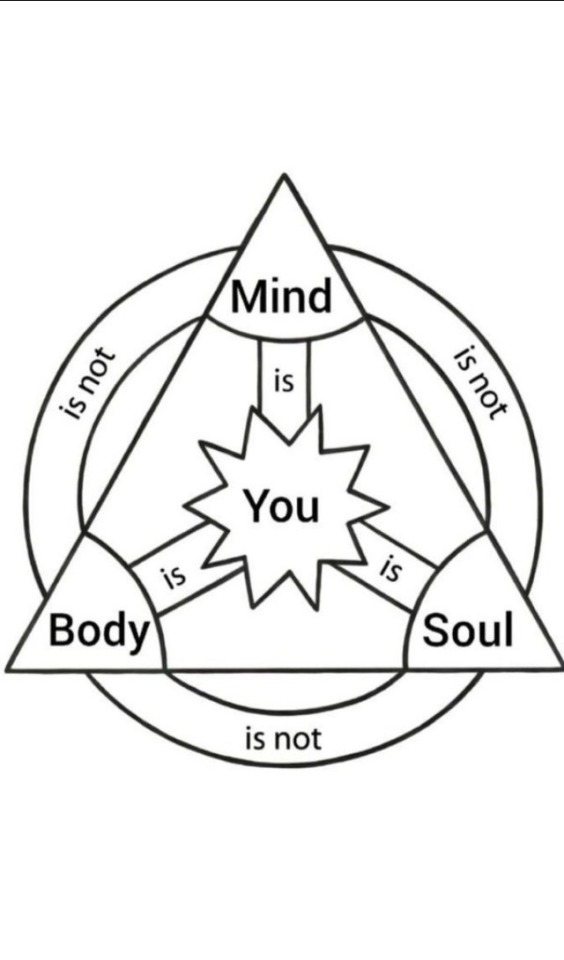
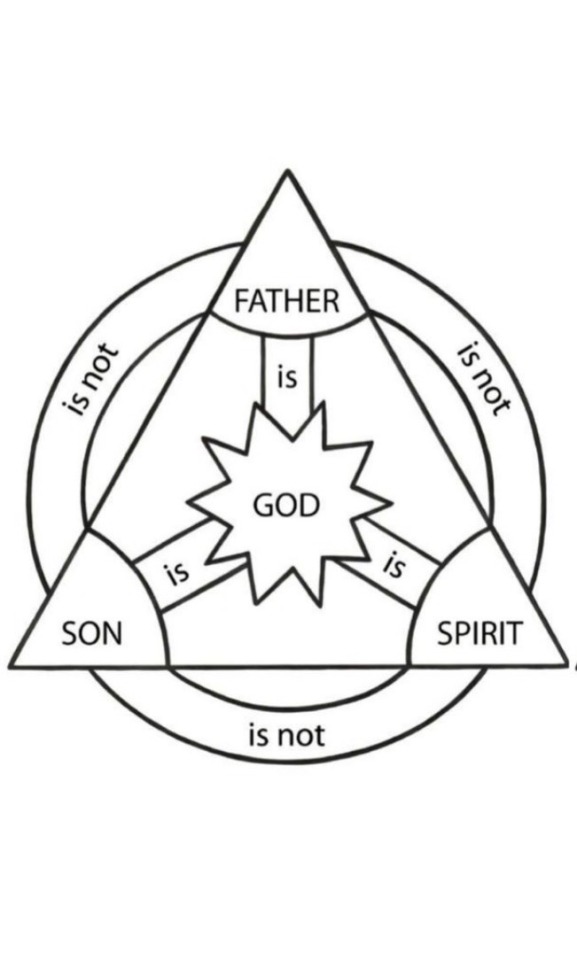
We are created in the image of God. Our selves reflect the three separate yet unified domains of our Eternal Father who created and guides events and lives in the matrix we call the universe. The Holy Trinity of God is reflected in you, a child of God.
“Let us make man in our image, according to our likeness.”
FLESH
You are one part flesh, the lowest of the three. All conceived of sexual passion will be tempted through their inherited flesh to choose earthly passions (sins), of which the price is death. One of our purposes in life is to strive to conquer our flesh, to nail our sins on Christ’s cross, He who has already paid the wages of sin by His sinless death. God born on Earth of His free Will, born to die for our redemption and reconciliation with the Divine, Eternal King and Creator, the Holy King and Master of the Universe.
MIND
You are one part mind, the middle ground caught between the flesh that seeks temporary pleasure and self satisfaction, and the soul, upon which God has written His Law and the knowledge of what is good and comes from Him. The mind has been purposefully given free will, because we are made in His Image as His children. With it, we must choose love in all we do and say and must seek to understand the truth. Scientific and worldly truth is fully encompassed, overshadowed, and owned by the truth of the Divine.
SOUL
Lastly and most wonderfully, you are one part soul, the lone burning candle within the darkness of heart and self and the part of you that makes you DIVINE. OTHERWORLDLY. We are all literally born to die. We are not from the Earth though we were born on it, quite literally in the created matrix where the forces of good and evil war. We were born into a war, and when you find God you become a soldier for the force of good on Earth, though little you may be. Your purpose lies in the framework of the choices you make for the sake of what is good - the loving, humbling, and sacrificial choices we are taught to make by the Son and the Word of God, Lord Jesus Christ. When you refuse to know or seek to know Him, you resign yourself to the true death. The soul’s disappearance upon the Will of God, the candle snuffed out, and for those who broke Jesus and Moses’ commandments without repentance and with knowledge of God, eternal punishment of the soul after the Great Day of Judgment. The conclusion of this war is written in the impending prophecy in the Book of Revelation, and we are comforted to know that good triumphs over evil in the end. In your life, triumph over evil, which uses the flesh as its doors, with the power and love of the Most Powerful, the Most Loving.
ON ANIMALS
The soul separates us from animals. Yes, they have feelings, altruism, and self-awareness, and are also creations of the Father, but they are not made in His Divine Likeliness and possess flesh and mind, but not spirit, which can transcend the three dimensions our flesh occupies. When you choose to deny the flesh its unending, self-serving whims, and choose to sacrifice for love and strive for good (all good comes from Him) you are honoring the Divine spirit within YOU. You honor GOD, who chose to die for you. Choose Him, for our days are numbered and the fire and prophesied tribulations quickly encroach upon the Earth. He will return to judge the living and the dead, and His Kingdom shall have no end.
Animals will only sacrifice their lives for relatives or social hierarchy, to further their own genes in an endless cycle of life and death on Earth. You are not locked into this cycle. You are partly divine, and you will return to face He who created you and has been pulling the strings of your life behind the scenes, though the forces of evil cut those strings or deceive you into cutting them yourself. But the single remaining cord is that of the soul; it is what brings the most fallen of us back to Him. You cannot even begin to imagine the depth of forgiveness He has towards His children who seek it earnestly.
TAKEAWAY
Thus, in honesty, listen to the cries of your soul as you navigate the gift of each day. Pray for the Spirit of God to win within you, all three: body, mind, and soul. You have very little true power on this Earth, it is written that you cannot even make a single hair on your own head turn white out of thousands. True human power lies not in money, fame, beauty, or status; all fall to the Great Sleep and all flesh returns to dust. Your power lies in understanding that you were created to serve the divine both within you and that which rules over you and all. With your life, you can glorify and praise God, and be further blessed by it. You understand what has been sacrificed for the sake and final destination of your soul, and you pay it forward to the fellow sinners placed in your life and within each of your days. This is the basis of agape love, a kind of love we strive to have for all humans and yet only a small sliver of God’s majesty.
Count them. Your days and your blessings. Though your days on Earth and the hairs of your head are numbered, the blessings and gifts for those who love Christ are not.
Christos razdajetsja! Christ is born!
Slavite Jeho! Glorify Him!
#orthodox christianity#tiktok#trump#jesus christ#israel#christianity#russia#religion#israel palestine conflict#goth#jewish#allah#islam#ramadan#makeup#self care#self h@rm#self improvement#self help#incel#air force#us army#us marines#the church of jesus christ of latter day saints#torah#quran#india#china#anadiet#body goals
2 notes
·
View notes
Text
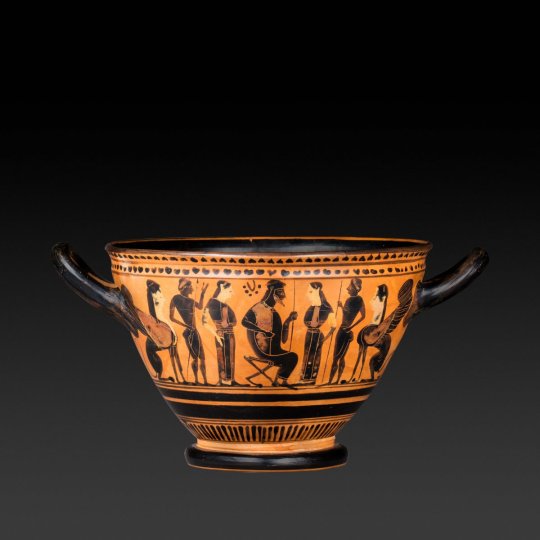
The skyphos is a large ceramic cup used by the ancient Greeks for the consumption of large quantities of wine. At informal male gatherings known as symposia, heady philosophical discussions usually progressed to drunken riotousness as the contents of the skyphoi were replenished.
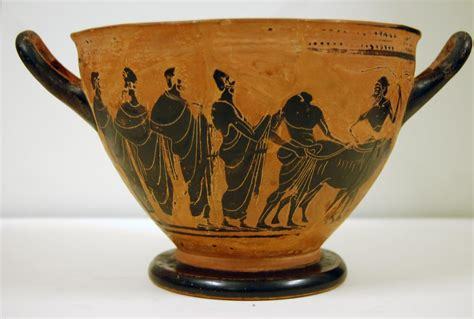
Skyphoi were often decorated with exquisitely painted scenes with clear references to Dionysos, the god of wine and revelry. In cases like the one seen here, however, the decoration evokes a far different relationship with the divine.
The scene on this skyphos represents a parodied depiction of the Judgment of Paris, a well-known incident from The Iliad, Homer’s epic story of the invasion of Troy by the Greeks. The evocation of a world of mysterious, irrational forces on the vase reveals a side of the Greek temperament at odds with the magisterial order imposed on human society by the Olympian gods.
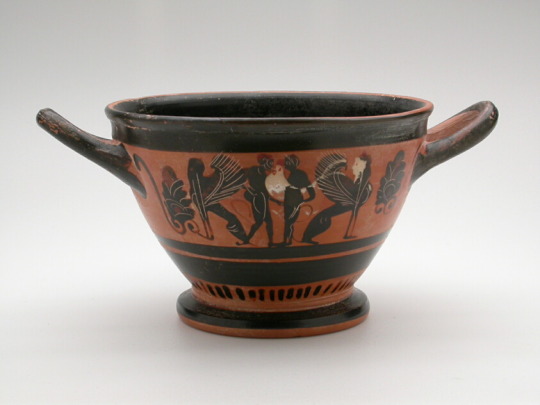
The image of black people plays a key role in the reconciliation between the everyday world of the Greeks and the more intimate experience of spiritual revelation.
The Trojan prince Paris was appointed by Zeus, ruler of the Olympian deities, to step in and settle rival claims of consummate beauty made by the goddesses Hera, Minerva and Aphrodite.
The fateful event is here reduced to only three summarily rendered characters. At left and center, respectively, Hera and Aphrodite are seated on the rocky slopes of Mount Ida, a sacred spot in the northwestern part of modern Turkey. Hera, queen of the gods, prominently wields her scepter, while Aphrodite, goddess of beauty and sensuality, holds the just-presented wreath of victory.
Before them stands Hermes, the winged god of communication and safe passage. In return for favoring Aphrodite, Paris received Helen of Sparta, the loveliest of all mortal women. The struggle by the Greeks to recover the already married Helen lasted 10 years and ended with the total destruction of Troy.
The story of the Judgment of Paris has been told and retold countless times, both in literary versions and in artistic form. Here, however, the straightforward treatment of the event has taken on a radically different form.
The face of Hera leers grotesquely with staring eyes and gaping mouth. Similarly, the representation of Aphrodite departs in a quite unexpected way from the somatic norm of the Greek figure. Rendered in strict profile, her negroid features are clearly evident. The same evocation of blackness characterizes the head of Hermes confronting her own.
All painted wares of this particular type are associated exclusively with the Kabeirion, a sanctuary located several miles outside the Greek city of Thebes. The sacred precinct is named after the kabeiroi, underground deities worshipped in secret. The appeal of this and other ancient mysterious religions such as the Egyptian Isis cult lay in the profound shift from the conventional obeisance to the gods to a rapturous, personal identification with the divine by initiates to the cult.
The numerous drinking vessels found at the Kabeirion seem to have formed an integral part of the rituals held at the sanctuary. The rites apparently concluded with the smashing of the cups, perhaps as a way of invoking the power of the kabeiroi.
The painted scene on the skyphos could also recall a dramatic presentation of the event, perhaps a short play staged in honor of the local deities. In this case, actors such as those portraying Aphrodite and Hermes on the cup would presumably have appeared as Africans, their affect aided by carved and painted theatrical masks.
The same inclusion of blackness holds true for several other types of scenes found on the Kabeirion skyphoi. One of the most remarkable of these presents a dramatic confrontation taken from Homer’s Odyssey, the companion epic to The Iliad.
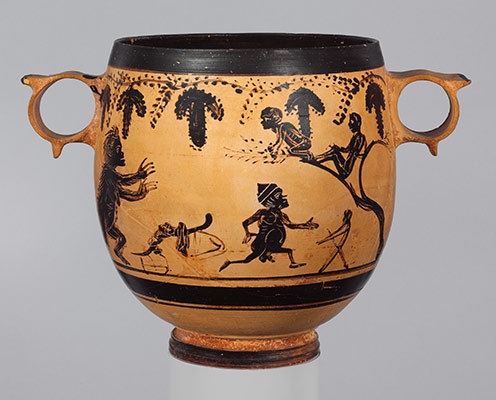
During a stop along the wandering path of his journey home, the great hero Odysseus encounters the sorceress Circe, who tries to transform him into a pig in order to keep him with her. She offers him the fateful potion, which he rejects with a surprised gesture. Circe appears unmistakably as a black woman, while Odysseus’ image is in keeping with the standard type of the old man in Greek art.
The underlying emphasis on powerful, occult forces in the Circe scene made it an ideal subject for use at the Kabeirion. The moment of potential metamorphosis from a rational creature into another, less comprehending form alludes to the ecstatic experience undergone by the initiates of the cult. Interestingly, the notion of a black Circe as skilled practitioner of spells reappears in our own time as the protagonist in Toni Morrison’s Song of Solomon.
The visual characterization of blacks as figures from Greek legend seems to have been derived from the association of Africans with the liminal zones of the earth, associated by the Greeks with barbarism—simply meaning non-Greek culture. On other skyphoi, the range of black figures includes the highly popular type of the cave-dwelling pygmy.
The great appeal of such foreign cultures for the Greeks stems, at least in part, from the belief that imagery derived from the African physiognomy could effectively counter the powerful, unsettling forces at large in the world.
As in any society, the farther a given form departed from Greek norms, the more unsettling it seemed. This response was hardly demeaning, however, since for the Greeks the exotic in nature held an enormous capacity for warding off evil. The apotropaic effect was greatly enhanced by the caricatural treatment of the subject, as seen in the representation of Aphrodite and Hermes on this skyphos.
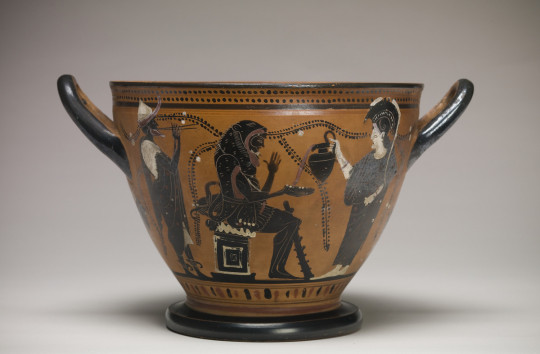
The apparently mocking treatment of the black figures in the Judgment of Paris should be regarded as a calculated inversion of the usual relationship between the Greeks and their gods. At a site where the powerful and potentially dangerous Kabeiric mysteries were summoned, the normal place of Greek religion was given over to the protection of the site’s resident forces.
The rendering of the Olympian gods as a positive form of the racialized other is supported in the extensive modern literature on the subject. Such a view is borne out by the argument of the pioneering scholar Frank Snowden that true racial prejudice did not exist in ancient times but evolved only with the advent of the slave trade in the early-modern period.
Snowden’s view is further supported by the incredible variety of sympathetic guises taken by the black form in ancient Greek and Roman art.
The profile features of a black man appear on coins minted by the city of Delphi in apparent homage to the venerated founder of the city. Among the Etruscans, the masklike black face placed on the eaves of a sacred shrine served as a powerful means to repel evil forces, a quality incidentally attributed to the kabeiroi themselves.
#Why Greek Goddesses Appear as Black Women on an Ancient Ceramic Cup#Black History#greecian lies#white lies
7 notes
·
View notes
Text
🪫: Judgment Day || exhaustion, burnout, fatigue, existential despair, abandonment, gods, helplessness, dolls
Judgment Day came on a Sunday.
Absent the fire and flames everyone had expected.
No buttons were pressed, no bombs fell, for judgment came not from mortal hands, all had come to dread, but instead from that source once considered quaint superstition: the divine.
And yet, it was mundane. Profane. Uneventful, even.
That Sunday was just a day of rest that wasn't. A weekend that didn't. A day on.
Hell, most hadn't even noticed, at first. Most hadn't understood until it was too late to stop.
I wandered the city, ambling down empty roads that had once pulsed with the lifeblood of commerce, still wondering if maybe, just maybe, I'd find a living soul.
To both sides, hollow storefronts stared like sightless eyes, vacant and dead, unseeing gaze as futile as my search.
There was no damage. No broken windows, no looting. No corpses, no ash, no sign of death or destruction or decline. As if everyone had just packed up and left.
It hadn't been an ending. Things had just ended, like a novel you couldn't finish or a show canceled after one season.
Even now, I expected to see...something. Some sign of interruption.
An empty pair of shoes or pants, an open book, a crashed car. Anything to suggest that everyone had just been instantaneously vanished from existence.
But they hadn't.
It hadn't been a rapture.
I hadn't been left behind.
Believer and atheist and every fence-sitting agnostic had all met the same end.
There'd been no seven seals, no trumpets, no horsemen. No thousand years of messianic peace, whether before or after the second coming.
Charitably, it had been post-tribulational, but that was a stretch at best. No one had recognized the hardship until it was over.
And while a few angels had been present, I suppose, really on the whole it'd been an eschatological disappointment. A failure of prophetic foresight.
The only part they'd gotten right had been naming it Apocalypse.
Revelation.
People hadn't taken the news well. Not when the proof of its truth had been all around them for so long.
Most had just...given up on the whole ordeal.
Stopped caring. Stopped fighting. Stopped living.
Given up and gone off to die or to stare at the stars, to smell the flowers, to listen to the birds.
And then to just...halt. As their mainsprings ran down and their time ran out.
And those few of us not mortal? We who'd been made to serve, to fulfill a purpose, to do a job?
We were left alone. Abandoned in a world that had decided nothing really needed doing after all.
I didn't blame them. Who would keep working after God Himself had condescended from Heaven and laid bare the Truth of His existence before humankind?
Who would keep fighting after all He'd done in that moment was weep? Weep and whisper the last words spoken: "I'm so tired."
~🪫
#empty spaces#microfiction#writing#fiction#exhaustion#burnout#fatigue#existential despair#abandonment#gods#helplessness#dolls
3 notes
·
View notes
Text

Beauty and Hesychia
"In the dazzling flesh of divinity, you have shown natural beauty to be even more beautiful O blessed Virgin, we bless the One whom you bore."
Of the Athonite Life it is said: "Sacred matter, that which is given to God, is replete with divine grace. The souls of the saints fly and flutter about, luminous and full of light. The relics of the saints perpetually emit the same uncreated and scintillating light; and indescribable and uncreated fragrance pours from their tombs. Everything around is filled by the beauty of their contrition and the fragrance of heaven." Yet, if such is so for the monk, then such must also be true for every person filled with grace and part of the Body of Christ. "True beauty is captivating; it pours forth love. Furthermore it teaches man to love goodness, offering and sacrifice." One's entire sojourn and journey along the Christian way proves to be a theological initiation - an initiation into the life of the Divine. "It molds a person like a deifying womb and nurtures him for a new life. One comes to believe in the Incarnation of the Logos of God and in the deification (theosis) of that which He assumed. One comes to live and believe that God is love and perplexing beauty, that the unveiling of His love is a revelation of beauty, and that His beauty is an offering, freely given from the bounty of His goodness. With this great beauty He refashioned our human substance by His Incarnation, Passion and Resurrection." From out of the withering, fleeting prison of our sin, we pass through the hour of judgment which breaks us down and resurrects us, toward enduring beauty and the freedom of inexpressible loveliness and the maturity of stillness. What we learn from the monk is that all men can be saved and become participants in the divine beauty through participation in the Lord's sufferings, through life-bearing mortification. To this end, Archimandrite Vasileios offers us the following reflection:
The monk’s life is beautiful because it is associated with that awesome hour of judgment and liberation. The monk’s life is a life of repentance and in the final analysis, is also a life of Transfiguration. It is the life of asceticism, labor, pain, endurance and tears. For this reason, it is crowned with divine and mystical consolation, and the beauty of spontaneity, truth and stillness. It is a life of philokalia, the love of beauty.
The monk pursues his love of beauty through his asceticism. He is an artist who grapples not with mere paints, sounds, or words, but struggles instead with his own entire being. He fashions himself. He asked to be given totally to God, to be fashion and by Him so that he can say willingly: “Not my will but Thine be done.“ When this happens, everything is given to him in that hour when he least expects it. His whole life bears the seal of that hour of crucifixion and resurrection. All his life becomes that hour of judgment from which springs the beauty of freely given salvation and the maturity of everlasting hesychia.
Then he either speaks, or writes, or builds, or chooses to remain silent with a comfort and a source of strength which are different. This is because Someone else is functioning instead of him. Someone else is speaking and writing, building or remaining silent.
Every hour becomes his sacrifice, his self-offering and thus the emergence as well of a perplexing beauty. Each of his trials becomes a blessing and so he remains silent and grateful. His entire self becomes a wound; his entire self becomes a spring of rejoicing. He lives Good Friday and the Resurrection at the same time. Every day he dies and every day he is resurrected. He does not live life as mere biological existence, but rather feels it breaking forth from the tomb at every hour to conquer death. Everything is a divine gift and a wonderful revelation. As the Lord said: "Do not be anxious about how you are to speak or what you are to say in that hour." In that hour, which is eternity, everything is given to him most vividly.
The true and genuine monk, the authentic monk, puts on no pretenses of being something he is not, because he is true. He moves and behaves unaffectedly. His entire being radiates the beauty that is within him. Better put, through his trials and endurance, divine beauty is revealed. His youth passes, he grows old but is rejuvenated. He becomes a "good" old man, a peaceful old man, in short, a monk. There is a comfort and a light which is not created light. There is a youth which is eternal, a humor which blossoms upon the tough branch of asceticism, and a life which ascends from the tomb. Such a monk, since he is liberated, plays in the morning of the Resurrection like a carefree child upon the sandy beach of the sea, upon the same seashore on which walks the resurrected Christ. He is tranquil because the Lord has mortified Hades with the lightning flash of His divinity.
A Beauty exists which abolishes death; a Stillness (hesychia) exists which abounds with eternal blessedness and splendor for all of us.
Archimandrite Vasileios
Abbot of Iveron Monastery, Mount Athos
Beauty and Hesychia in the Athonite Life
3 notes
·
View notes
Text
revelation loveblog with a gunter focus, ch26, 4/4.
this one's the last big one and deals with some really heavy topics, not kidding, so take a drink and/or a break if you need to.
where we left off: corrin defeats gunter.

this is another one of those perfectly framed shots that does such a good job of capturing the emotional subtext.
gunter is cornered.
the big bad divine god that he thought he had (anankos) is silent, leaving him alone to die, watching him as judgmentally in the background as the other royals.
he expects no mercy, still, as a traitor.
there's a bit in my fic (sorry i'll be saying that a lot) where strictly speaking, by nohrian and hoshidan justice codes he'd almost certinally be executed for his actions this day.

remember what I said about the desperation and despair starting to sink in? you really see it here. anankos is still influencing him, but you see the man underneath panic.
gunter has always been prepared (and i truly believe, wanted to) die honorably on the battlefield.
he does not want to die like a cornered animal.


note he's holding a sword now. that's about to get important. (all nohrian knights likely have a sword on them even if they favor lances like he does, or axes.)
Azura starts singing her healing song.
it's a bloody fantastic idea since she's capable of swaying minds with her songstress magic, and it's always been a "good" foil to Anankos' warped magic.
and ....

it's working. partially at least. good on xander for noticing this, too. he's becoming a remarkably decent leader in his own right.
(apologies for the javelin in azura's hand breaking immersion a bit)

the camera angles are exquisite, and absolutely heartbreaking here.

:")
it's notable she doesn't just stop at the bare minimum of what the game outlined as his duties. gunter really went above and beyond in raising her.
(so, yes I have thoughts(tm) about that discipline line, ironically not even in the iddy sense but it's complicated so put a pin for that in a different meta post later.)

that's significant. titles come back.
this time... it's not explicit, but i would bet you cash money it's done out of genuine respect for her, not rote. he's fighting against anankos.
for all of his legitimate resentments, there's that part of him that really does treasure those happy memories.
it's particularly bittersweet/telling considering how much memory is its own traumatic arc for corrin, too, with her mind wipes.
the fact they both hang on so tightly to those moments as an anchor?
...


...
at the last second - he stabs himself with the sword in a fatal disemboweling wound...

...
... and we see black smoke rise out of him in a very explicit gesture that anankos has finally left his mind and body for good, thanks to corrin and azura's efforts.
you ever research disemboweling wounds?
there's a reason why it's consistently ranked up there as one of the ugliest ways to die.
...
(note the title again below)

...
gunter collapses.
...
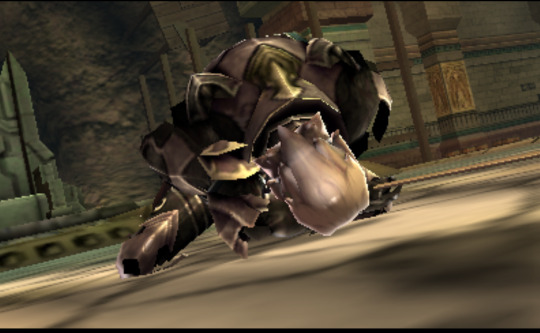


corrin calls over the healers, and this time, they're able to save him.
...
so.
here's the thing. this is more interpretation/fic stuff, but--
i've always had the long-standing conviction that possession would leave emotional scars remarkably similar to sexual assault given the type of mental violation. (this also had the semi-intentional result of paralleling with Corrin’s mind wipes which is also a violation of a very similar kind. it's a big theme in the fic.)
something else that's a big theme there, and i hope, not without reason, because i see it all over his arc here in revelation - is dignity.
dignity, or the lack thereof.
gunter's a very proud man of his generation; pretty much every time we see him elsewhere in the game there's a consistent focus on control and discipline.
garon was the one that broke him first, but there were many, many instances afterwards that just ground him in the dust, particularly with anankos. here, he doesn't even have the dignity of privacy anymore; he's got the people who he hates the absolute most, watching all of this.
my point here is he is truly at his absolute lowest.
no wonder his endings strongly imply he offs himself after the game.
'revelation's the golden route for everyone' my fucking ass
...
back to the game, sakura/elise heal/stablize him, and he's able to talk again, barely. but at least he's out from under anankos' possession.
here comes the whammers.
gunter decides to come clean.
this isn't for anyone else's benefit. this is just for corrin's.

you know, i just realized. how the hell does he react when he realizes she's a dragon on top of being a thrice-cursed royal? (back eventually when he meets her in the bottomless canyon.)
dragon "anything" (especially with anankos now) was and is going to have some real unpleasant connotations for him.
...

and there it is.
...
"once / was also"
you know, that sure implies garon forced gunter to watch. not just arriving on the aftermath of the scene.
jesus fuck.
....
fuck.
...
...
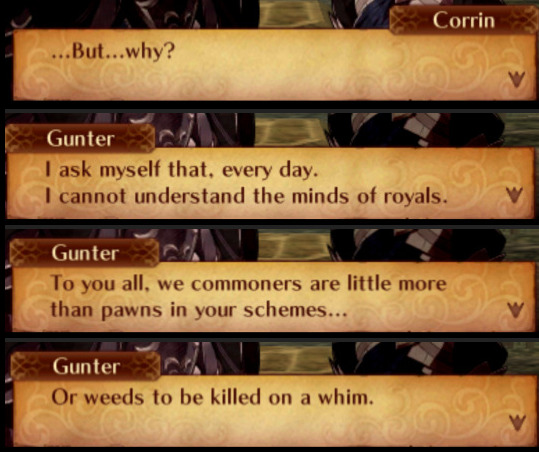
ngh, that "you all".
yeah, I called it again with that resentment and him absolutely throwing Corrin in there too. it's complicated with her-- there's a reason she's the only one that was able to bring him back at all-- but not for one moment has he ever forgotten that she's a royal too.
here's the other interesting thing. he never tells corrin about his dead wife and kid in conquest's married route with her, even when it's ostensibly "her dad"" that does it.
i don't think it's him being deceptive as much as ... he's satisfied when corrin kills garon, and this is such an old scar that hurts that badly that he just straight up takes it to his grave.
literally the only time we hear is now, against his will.
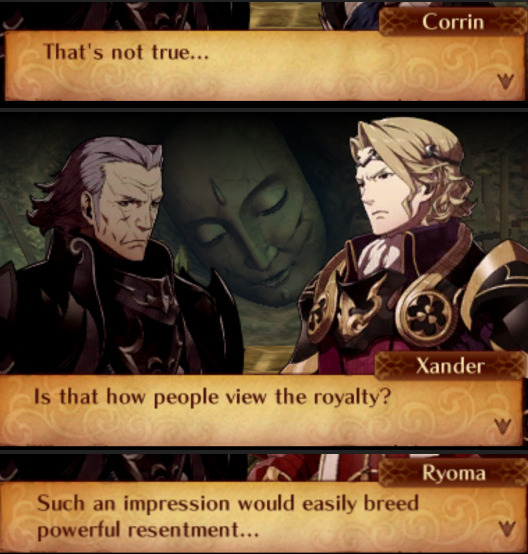
he bares his soul to you all, and that is you react? jesus, that's tasteless.
fucking christ alive, get your heads out of your arses for once and quit fucking thinking about yourselves.
...
ngh.
..

aaaand there's the other big whammer.
note that he says this when he's not possessed. this isn't anankos twisting a resentment and jacking it sky high to ""debatably"" a falsehood. this is 100% the truth from the horse's mouth.
now, mind, it's not the whole truth.
he would not have let corrin bring him back from the absolute brink if there was nothing but hatreds and resentment - there's undying love, affection, and i genuinely believe, yes devotion there.
but yeah, their relationship is complicated as fuck.

okay, so I've talked before about how this chunk is actually different depending on m!corrin/f!corrin existing in terms of this strongly implying he holds a romantic flame for f!corrin even on revelation's route and not just conquest.
that said that's more of a 'ship manifesto' tangent, and I'd like to focus just on him for this post.
corrin, babe, i don't think you really understand, but props to you for giving a shit. that actually does mean a lot.
we're almost done.
corrin's giving him a remarkably gentle pep talk so he doesn't turn around and disembowel himself again.

that was absolutely the right tack to take.
corrin gets it here. she remembers his family. that more than anything, is what convinces him to stay on for this one last gauntlet to kill anankos for good.
ellipses strike again. given the turmoil he's going through, it makes sense.

...
there'll be one shorter post capturing everything end/post-game, but nothing to this degree.
thanks for reading.
#... that was the single hardest meta post i've ever done and i'm not doing that again. damn.#[ sticks cig in my mouth and mutters ] after this we back to hookers n hornyposting n shitposting mates#krad loveblogs revelations: electric boogaloo
7 notes
·
View notes
Note
You left some fucked up tags on that post about propaganda. You realize that post was by a jewish person living in Israel, right? If you were really concerned about propaganda, maybe question what you've been told in your church, cause believing that Israel needs to be destroyed for the antichrist to come is fucked up and probably about the most antisemitic thing you can believe besides being a straight up nazi.
Anon's talking about these tags:

If this is "antisemitic," so be it. God will judge me for that, they're HIS people, they belong to Him more than to anyone alive today. But. Revelation clearly states that the entire world WILL gather together against Israel at Armageddon. Why would that happen if the world doesn't hate Israel before then?
I don't know where anon is getting the idea that I said Israel will be destroyed, because, like... it won't? Israel can't be destroyed, God won't allow it, He promised Abraham they will have a heritage forever- in fact, Revelation speaks of 144,000 male Jewish virgins that have been sealed for God's purposes. Just what their role is in Revelation, we don't know yet.
What I did say is that the world will hate Israel. I also said that they will hate God and His people- not JUST Israel, not JUST Jews, but Christians as well, whether Jews or Gentiles.
Contrary to what anon seems to think, I DON'T WANT THIS. But it's gonna happen. Or... I should say, this is what we think is gonna happen. Revelation 16 says the Euphrates river will dry up so that even the "kings of the east" will gather at Armageddon, indicating that Armageddon is just to the west of the Euphrates (which Israel is). As for the location of Armageddon:
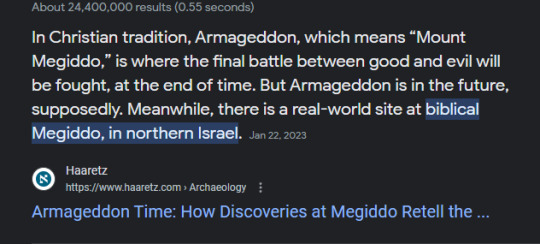

Now, then. Having said ALL this, I will also say: we're dealing with prophecy. No matter how much we study it, we don't know all the particulars. No one knows the future unless God divinely reveals it to them. He hasn't divinely revealed it to me, I'm just reading His word and some commentaries on it (eschatology having long been a fascination of mine).
WE COULD BE WRONG. Maybe Megiddo isn't Israel, maybe it's the last stronghold of Christianity, in a completely different part of the world. This is just what most people agree the Bible is saying.
Regardless of the location of Armageddon and whether it is about Israel, it is clear that Satan will gather every single human being that has not given their hearts to Jesus against the remaining few who have. The good news is that Jesus, Himself, will return, wipe out those who hate Him, and lock Satan up for a thousand years while His people reign over the Earth.
And Father, forgive me if I'm speaking ill of your people. You know that's not my intention. I'm simply trying to make sense of the lunacy in the world today. And warn people that your judgment is coming.
#israel#prophecy#eschatology#revelation#armageddon#i usually save this kinda stuff for my Bible blog but...#oh well
2 notes
·
View notes
Text
pt 2 a much needed sabbatical
im going to see how many of these little ficlets i can churn out while ive got these two weighing on my mind! when i organize this for ao3, this part will go before the first that i wrote
tyrell pov, pre-tyrving, unrequited tyrelliot
a take on the scene in the basement of red wheelbarrow bbq where irving tells tyrell that he's the god. still not sure what tyrell meant by all that god stuff but i rolled with it lolol
The revelation of Elliot's betrayal was difficult for Tyrell, to say the least. Who was he even in love with? Mr. Robot? What kind of a name was that? He could adjust, perhaps, but that was going to be a difficult name to work with.
Was he in love with one half of Elliot? One half of his brilliance? Did Mr. Robot love him too? It seemed Elliot certainly did not. And even if he had, he especially would not now that Tyrell had shot him.
God, all of this. It was difficult to bear. When could he see his wife? His son? He'd been in this basement for so long, not nearly as long as the middle-of-nowhere cabin, but there wasn't even sunlight here. No wood to chop. His hands itched for the ax. Irving had been right; it centered him.
Irving. Tyrell wouldn't lie, he'd started to crave the man's presence. His was the only semi-friendly face he saw on a regular basis. And now, in this basement, Tyrell was more scared than ever. It felt like he could be smothered down here, by the darkness. Irving's glib, empty, one-way conversations would be welcome.
Elliot didn't love him. Didn't believe they were gods. And maybe they weren't. Maybe neither of them were.
A bang from the door down the hall and up the stairs startled Tyrell out of his spiral. Irving walked easily down the stairs, brown suit jacket as inoffensive as ever, glasses from the 80s perched on his cartoonishly aloof face. All of Tyrell's attention was inexorably drawn toward him; it felt like Irving drew the very air in the room to billow around him, a distinct yet subtle sense of power and control. Tyrell felt, as he often did, that he truly didn't know the other man at all.
Irving sat himself down on the couch, the one fluorescent light in the corner highlighting them both in a blue tint. Tyrell let all of it come out. His gnawing desire to see his wife and son, safe, in front of him, his frustration with Elliot, his anguish at shooting him. All of it gushed out of him, rushing out of his mouth and shaking its way out of his arms and legs and he paced and gestured.
Irving sat calmly through it all, legs crossed, blithe expression. The light filtered through his glasses, hiding the shine of his dark eyes.
"We were meant to be gods!" Tyrell held his hands out, pleadingly, as if Irving could reach up and place his dream back into his palms, fix what had been broken.
Abruptly, Tyrell thought of what he must look like, yelling like a child whose toy had been lost, stolen by waves at the beach or knocked haphazardly off the platform onto the tracks of a subway. He turned away from Irving, facing the darkest corner of the room where the edges of the walls became blurry and faint, as if he could walk into that half-light world and disappear forever.
"Uh-huh," Irving said after a long pause, but for once, the way he said it almost sounded like he gave a shit. "Well, Tyrell. Maybe the lesson here is not as dire as you're making it out to be.”
Tyrell huffed, but stood frozen, waiting to hear it from him, Irving’s judgment.
“Now from what I can understand, from what you're saying, I'm hearing that we can definitively say that Elliot," He put a derisive emphasis on the man's name, and Tyrell instinctively tensed. "Elliot is not a god.”
Irving paused to let that sink into Tyrell’s veins. He wanted to deny it, but how could he?
“But you, Tyrell," Irving said, his voice firm and sure. "You are the god."
Irving said it so simply, as if it was the most obvious conclusion, as if he could see the divinity radiating here and now off of Tyrell’s body. And as his words echoed in the dim room, Tyrell's heart and guts and the very fibers of his being glowed. Could Irving really see it? See the vision of his godhood?
"Yeah.” Irving let out a breath that could almost be a laugh. “Fuck him, you don't need him. You’re the god, Tyrell, always were."
Tyrell turned, eyes welling with tears, to look at Irving, still sitting prim there on the couch, as if he hadn’t just flipped Tyrell’s world upside down, broken the foundations, and constructed something new and vast and beautiful there inside of him.
Are you a god, too, Irving? Tyrell thought as he looked at the other man. He didn't bother to ask aloud, the answer was in the transcendental outline of Irving’s form in the dark, the halo of blue light anointing them both. No need to ask. Yes, yes, yes, they were gods.
2 notes
·
View notes
Text
The Night Yearning of the Soul
Isaiah 26:9 declares, “With my soul have I desired thee in the night; yea, with my spirit within me will I seek thee early.” These words express an intimate, unyielding longing for divine communion, emphasizing the human spirit's deep craving for the presence of God. Without it man is empty and most miserable. The "night" mentioned here is not merely a literal time-frame; it symbolizes seasons of darkness, uncertainty, and introspection. During such times, the soul becomes acutely aware of its need for the Creator. The deeply-felt yearning described transcends superficial desire, capturing an existential thirst that only God can satisfy. The spirit, untied from distractions, rises early to seek the divine, demonstrating diligence and urgency in spiritual pursuit.
The Soul's Desire and Spiritual Persistence
The Hebrew word used for "desired" conveys a sense of fervent longing, a hunger that occupies both the conscious and subconscious mind. This desire is not passive; it propels the soul into action. The dual references to the soul and spirit reflect an all-encompassing commitment, where every aspect of human existence is directed toward seeking God. The night hours, often characterized by silence and stillness, become a metaphorical altar where the heart lays bare its deepest fears and hopes. This nocturnal yearning evolves into an active, intentional pursuit at dawn, underscoring that seeking God is both a reflective and proactive endeavor.
Night as a Metaphor for Spiritual Testing
The night often symbolizes spiritual trials, a theme that resonates across scripture. In the quiet stillness of darkness, human vulnerability is laid bare. This verse invites reflection on how challenges and solitude can refine spiritual focus. The soul, confronted with the limits of human strength, wisdom and understanding, turns to God as its ultimate refuge. The "night" may also reflect the moments of inner conflict when worldly distractions wane, and the eternal reality of God's presence becomes undeniable. These periods of testing, though arduous, are fertile ground for cultivating spiritual resilience.
Early Seeking: A Mark of Devotion
The phrase "seek thee early" reflects deliberate and eagerness. The original Hebrew implies not only early timing but also earnestness and intensity. This pursuit underscores the soul's recognition that divine wisdom and intervention are indispensable. Early seeking suggests prioritizing God above all else, establishing Him as the foundation of daily life. The transition from nocturnal longing to morning pursuit illustrates a holistic approach to faith, where moments of introspection lead to tangible acts of devotion. This cyclical rhythm—desire in the night, seeking in the morning, captures the essence of a thriving spiritual relationship.
Divine Justice as a Catalyst for Longing
The latter part of Isaiah 26:9 highlights a connection between God's judgments and humanity's pursuit of righteousness: “for when thy judgments are in the earth, the inhabitants of the world will learn righteousness.” Divine justice serves as a mirror, reflecting God’s holiness and compelling the soul toward repentance and alignment with His will. The interplay between judgment and righteousness reveals that longing for God is not merely emotional; it is anchored in an awareness of His moral authority. The soul yearns not just for God's presence but for His guidance and truth to shape its path.
The Interplay of Desire, Discipline, and Revelation
Isaiah 26:9 paints a vivid picture of spiritual dynamism. Desire fuels the journey, discipline sustains it, and revelation unfolds along the way. This verse challenges readers to examine the depth of their own spiritual hunger. Are their longings confined to fleeting emotional experiences, or do they inspire enduring commitment and transformation? The scripture calls for an integrated faith, where the soul's nighttime cries lead to morning action, and divine truth becomes the guiding force through both.
0 notes
Text
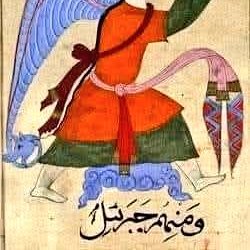
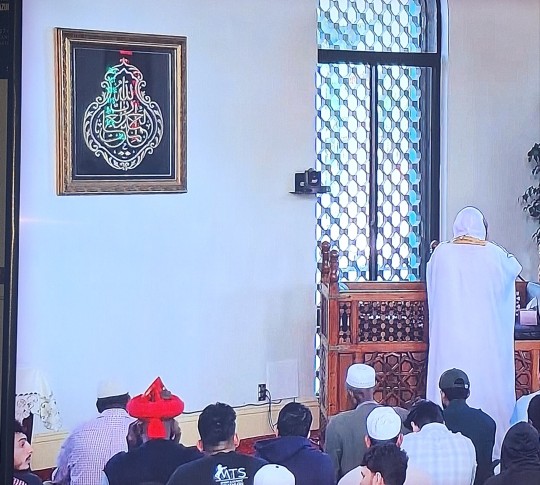



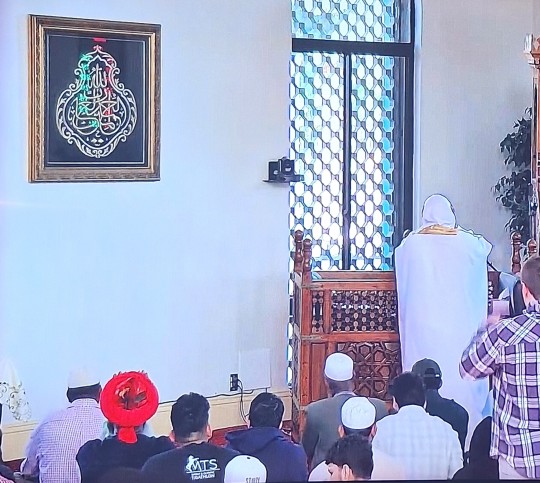

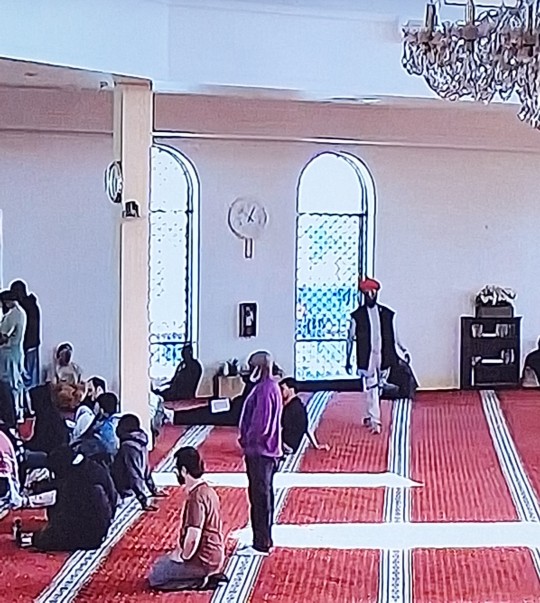


Bissmillah'hir'Rahman'hir'Rahim❗️
Angels are mentioned more than 80 times in the Qu'ran and Belief in the Angels is a fundamental part of Iman (faith), just like the belief in Allah and the Risalah (Prophethood). The (Mala'ikah - Angels) Below are the names and functions of the Main 10 leading Angels (alayhum salam).
1.Jibrail: To deliver the Divine Revelations from Allah (Subhanahu wa Ta’ala) to His chosen Messengers from among the prophets (alayhum salam).
2. Mikail: To manage man’s mundane necessities, bring forth Rain and oversee the cultivation of crops.
3. Israfil: To blow the Trumpet: once, for the destruction of the universe; and again, for the Resurrection of all accountable beings to face Judgment Day.
4. Izrail: Angel of Death, the most fearsome of them all, who does not delay nor expedite the hour of claiming the soul.
5. Maalik: Supervises 19 other angels who guard Jahannam (hell) himself is the Guardian of Jahannum (Hell-fire), an unwelcome sight, for the unfortunate and wretched dwellers of the eternal fire.
6.Ridwan: Guardian of Paradise, who welcomes the Prophets (alayhum salam) and the righteous who have been blessed by Allah (Subhanahu wa Ta’ala).
7. Munkar : To question the dead on issues relating to his/her God, prophet Salla Allahu ta’ala ‘alayhi wa Sallam, religion, belief, deeds, etc. Questioning in the grave.
8. Nakir: To question the dead on issues relating to his/her God, prophet Salla Allahu ta’ala ‘alayhi wa Sallam, religion, belief, deeds, etc.
9. Raqib: Sits on man’s right shoulder to record his/her good deeds.
10. Atid: Sits on man’s left shoulder to record his/her evil deeds.
Together Raqib and Atid are called the Kirama Katibeen.
“(Remember) that the two receivers (recording Angels) receive (each human being), one sitting on the right and one on the left (to note his or her actions. Not a word does he (or she) utter but there is a watcher by him ready (to record it).” (Qur’an 50:16-18) In another verse (82:11), these Angels are referred to as Kiraman Katibin or “honorable scribes”.
➖️ Fātíāh ✨️🕋✨️
#ceasethefolly#themoorish#naqshbandi#Moorsish#TheMoor#MasjidInLosAngeles#BaytUlIlm#FearAllāh#TheHigherSelf#TheLowerSelf#KeepYourselvesInCheck#OrElse#EndlessFire#HowsYourPrayerLife#WhoMadeYou#WhoAreYou#AlIslam#DínĀlFítrāāh#Tasawuuf#southcentrallosangeles#Naqshabandi#AllāhüHāqq#jummahflow#SuralTalJummah#straightpath#asiaticmoor#angelsanddemonsatplay#Spotify
0 notes
Text
Does the Bible Support Astrology?

Astrology, the study of the movements and relative positions of celestial bodies and their purported influence on human affairs, has been practiced for millennia. With its roots in ancient Babylonian, Egyptian, and Greek civilizations, astrology has evolved into a widely followed belief system in many parts of the world. The question, "Does the Bible support astrology?" is one that has been debated among theologians, scholars, and laypeople for centuries. To answer this question, it is essential to examine both the biblical text and the historical context in which it was written, as well as the theological principles regarding God's sovereignty, human free will, and the nature of divine revelation.
In this article, we will explore the Bible’s stance on astrology by looking at relevant scriptures, analyzing the historical and cultural context, and offering theological reflections on the matter.
1. What Is Astrology?
Astrology is the belief that the positions and movements of celestial bodies (such as the planets and stars) influence events on Earth and shape human lives. Practitioners of astrology commonly cast horoscopes, which predict or analyze an individual's personality traits, life events, and future outcomes based on the time and place of their birth. Astrology is divided into various systems, such as Western, Vedic (Indian), and Chinese astrology, each with its own methods and interpretations.
Astrology has existed in various forms since ancient times. In the ancient world, astrology was often intertwined with religion and considered a science by many civilizations. In the Greco-Roman world, astrology was regarded as a way to understand the will of the gods, while in the Babylonian Empire, it was used to guide kings and rulers in making decisions.
2. The Bible’s Stance on Astrology
While the Bible does not explicitly mention "astrology" in the modern sense, there are several scriptures that address the worship of celestial bodies and the practice of divination. The Bible provides clear guidance on how believers should approach such practices and whether they align with God's will. To understand the Bible's position, we will examine key scriptures related to astrology, divination, and the worship of the heavens.
The Old Testament: Warnings Against Astrology and Divination
Deuteronomy 4:19 and Deuteronomy 17:2–5 In the Book of Deuteronomy, God commands the Israelites to avoid the worship of celestial bodies:
"And when you look up to the sky and see the sun, the moon and the stars—all the heavenly array—do not be enticed into bowing down to them and worshiping things the Lord your God has apportioned to all the nations under heaven." (Deuteronomy 4:19, NIV)
These verses warn the Israelites against idolizing the heavens or using the stars for purposes of divination or worship. The reference to the "heavenly array" in Deuteronomy 4:19 refers to the sun, moon, and stars, which were commonly worshiped by surrounding nations in the ancient world.
In Deuteronomy 17:2-5, God also forbids the practice of idolatry and commands the Israelites to put to death any person found guilty of worshiping foreign gods, including celestial bodies.
Isaiah 47:13–15 The prophet Isaiah provides a strong condemnation of astrology and the Babylonians' reliance on it:
"All the counsel you have received has only worn you out! Let your astrologers come forward, those stargazers who make predictions month by month, let them save you from what is coming upon you. Surely they are like stubble; the fire will burn them up." (Isaiah 47:13-14, NIV)
In this passage, astrology is depicted as futile and ineffective. The astrologers are mocked for their inability to save the Babylonians from the coming judgment. The passage highlights the contrast between the impotence of astrology and the power of the God of Israel, who is the ultimate source of knowledge and control over the future.
Jeremiah 10:2 Another significant scripture warns against adopting the practices of surrounding nations:
"This is what the Lord says: 'Do not learn the ways of the nations or be terrified by signs in the heavens, though the nations are terrified by them.'" (Jeremiah 10:2, NIV)
Here, God explicitly commands His people not to be influenced by the signs of the heavens or engage in practices like astrology, which were prevalent in other cultures. This verse emphasizes that astrology is associated with fear and superstition, something that Israel is to avoid.
2 Kings 21:3, 5 King Manasseh of Judah is condemned for practicing astrology and other forms of idolatry:
"He rebuilt the high places his father Hezekiah had destroyed; he also erected altars to Baal and made an Asherah pole, as Ahab king of Israel had done. He bowed down to all the starry hosts and worshiped them." (2 Kings 21:3, NIV)
This passage records the sinful actions of King Manasseh, who led Judah into idolatry, including the worship of the "starry hosts." The "starry hosts" are often understood to refer to the heavenly bodies—planets and stars—that were worshiped by the pagans of the time. Manasseh's actions are portrayed as a direct violation of God's commandments.
The New Testament: Further Discouragement of Divination
Acts 16:16–18 In the New Testament, astrology is indirectly addressed through the story of a slave girl in Philippi who is possessed by a spirit of divination:
"She followed Paul and the rest of us, shouting, 'These men are servants of the Most High God, who are telling you the way to be saved.' She kept this up for many days. Finally Paul became so annoyed that he turned around and said to the spirit, 'In the name of Jesus Christ I command you to come out of her!' At that moment the spirit left her." (Acts 16:16-18, NIV)
While this passage does not mention astrology specifically, it illustrates the New Testament view on divination, which was often closely linked to astrology in the ancient world. The apostle Paul rebukes the spirit of divination, showing that such practices are not of God and are to be rejected.
Colossians 2:8 The apostle Paul warns the believers in Colossae not to be taken captive by philosophies and practices that are contrary to Christ, which could include astrology:
"See to it that no one takes you captive through hollow and deceptive philosophy, which depends on human tradition and the elemental spiritual forces of this world rather than on Christ." (Colossians 2:8, NIV)
The "elemental spiritual forces" mentioned here could refer to the forces believed to control the cosmos, such as the stars and planets. Paul cautions Christians against being influenced by teachings or practices, including astrology, that are based on human wisdom rather than divine revelation.
3. Theological Reflections on Astrology
The Bible consistently emphasizes the sovereignty of God over the natural world, including the stars and planets. The celestial bodies are created by God and are subject to His will, not to be used as tools for predicting or controlling human fate. The Bible teaches that God alone has control over the future, and it is He who directs the course of human history (Isaiah 46:9–10).
God’s Sovereignty The Bible teaches that God is sovereign over all things, including the natural world. Psalm 147:4 declares, "He determines the number of the stars and calls them each by name." The stars are not to be worshiped or consulted for guidance; instead, they are part of God's creation and serve His purposes.
The Danger of Idolatry Astrology can lead to idolatry, as people may begin to place their trust in the stars and planets rather than in God. The Bible is clear that worship of anything other than God is forbidden (Exodus 20:3–5). Astrology, in its most dangerous form, can replace trust in God's providence and sovereignty with a reliance on the stars.
The Call to Trust in God Alone The Bible calls believers to seek God for guidance and wisdom, not the stars. Proverbs 3:5–6 encourages trust in God: "Trust in the Lord with all your heart and lean not on your own understanding; in all your ways submit to him, and he will make your paths straight." Similarly, James 1:5 promises that God will give wisdom to those who ask for it.
4. Conclusion: Does the Bible Support Astrology?
The Bible does not support astrology. Rather, it consistently condemns the worship of celestial bodies and divination practices that seek to predict or control the future through the stars. Scriptures from both the Old and New Testaments make it clear that astrology is a form of idolatry and that believers are called to trust in God alone for guidance and direction.
The Bible emphasizes God's sovereignty over the natural world, including the stars, and teaches that humans should rely on God's wisdom, not the stars, to navigate life. As such, astrology is incompatible with biblical faith, which calls believers to seek divine revelation and to place their trust in God's providence rather than in the movements of the celestial bodies.
For Christians, the challenge is to resist the temptation to turn to astrology or other forms of divination for guidance, and instead, to place their trust in the living God who knows the future and holds all things in His hands.
0 notes